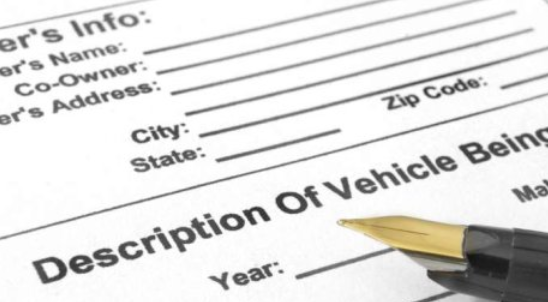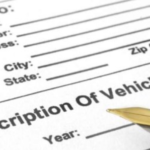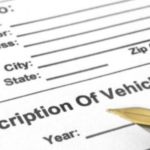Last Updated on March 22, 2018 by Jason Mason
When buying a car in Virginia, you must obtain certain required paperwork from the seller in order to register and title your vehicle. If you buy your car from a dealer, they will normally process the required paperwork on your behalf. However, if you buy the car from a private seller, you will need to visit the Virginia Department of Motor Vehicles (DMV) to register and title the car in your name. Continue reading this article to get more information about the paperwork required when buying a car in Virginia.
Paperwork for Virginia Car Buyers
As a buyer, you must obtain the certain paperwork from the seller to use them when registering and titling your car. The most important document that you should start with; is the vehicle title. This document should be correctly filled out to include:
- The purchase price and purchase date if there is enough space on its back. If there is no space on the document for the above information, you should obtain the bill of sale. For vehicles older than 5 years, you should obtain Form SUT 1 (Vehicle Price Certification).
- The Assignment of Title by Owner.
- Form VSA 17A (Certificate of Title and Registration).
- Form VSA 5 (Odometer Disclosure Statement) to document odometer reading.
- The seller’s signature.
- Your signature.
If the title certificate is damaged or missing, you must ask the seller to apply for a duplicate copy for you.
Next Steps for Buyers
After obtaining vehicle title, you’ll take the following steps:
- Make sure the vehicle has a current and valid safety inspection sticker.
- Get an emission inspection if you live in Prince William, Fairfax, Arlington, Loudoun or Stafford Counties or Manassas, Fairfax, Alexandria, Falls Church, or Manassas Park.
- Get car insurance.
- Title the vehicle.
- Register the vehicle.
If you buy your car from a dealer, they will process all the required paperwork on your behalf.
Title Transfer and Registration in Virginia
To officially transfer vehicle ownership into your name, you must register and title the car. Before you register your car, you must have car insurance for the vehicle and obtain a valid safety inspection sticker. To title and register your car, you must visit your local Virginia DMV office to do so. Be sure to carry with you:
- The vehicle title.
- A bill of sale, if applicable.
- Proof of insurance.
- Form VSA 14 (Vehicle Registration Application).
- A valid inspection sticker.
- Proof of your address (Virginia driver’s license).
- Payment for fees and taxes.
Required fees and taxes
- $10 title transfer fee.
- Sales and use tax: $75 or 4.05% of the sale price — whichever is more.
- Registration fee, which varies depending on vehicle type or weight.
NOTE: Details on Virginia emission inspection are sent electronically to the Department of Motor Vehicle. Once all the required documentation have been submitted and verified, you will receive your license plates within 2 weeks.
Vehicle History Reports
A vehicle history report is not needed when registering or titling the car in your name. However, this document is required when purchasing a car. Based on the VIN, you can check:
- The vehicle’s accident history.
- Ownership history.
- Repair history.
- Odometer reading.
This report can protect you from becoming a victim of car frauds.
Vehicle Fraud in Virginia
There are a lot of vehicle frauds in Virginia, such as odometer tampering, curb-toning and title forgery. You must know how to avoid these frauds. First, you must hire a qualified mechanic to inspect the car before purchase. You also need to request a vehicle history report of the car that you are purchasing. If you suspect any vehicle fraud, report it immediately to the nearest Virginia Department of Motor Vehicle at (877) 937-6372.




